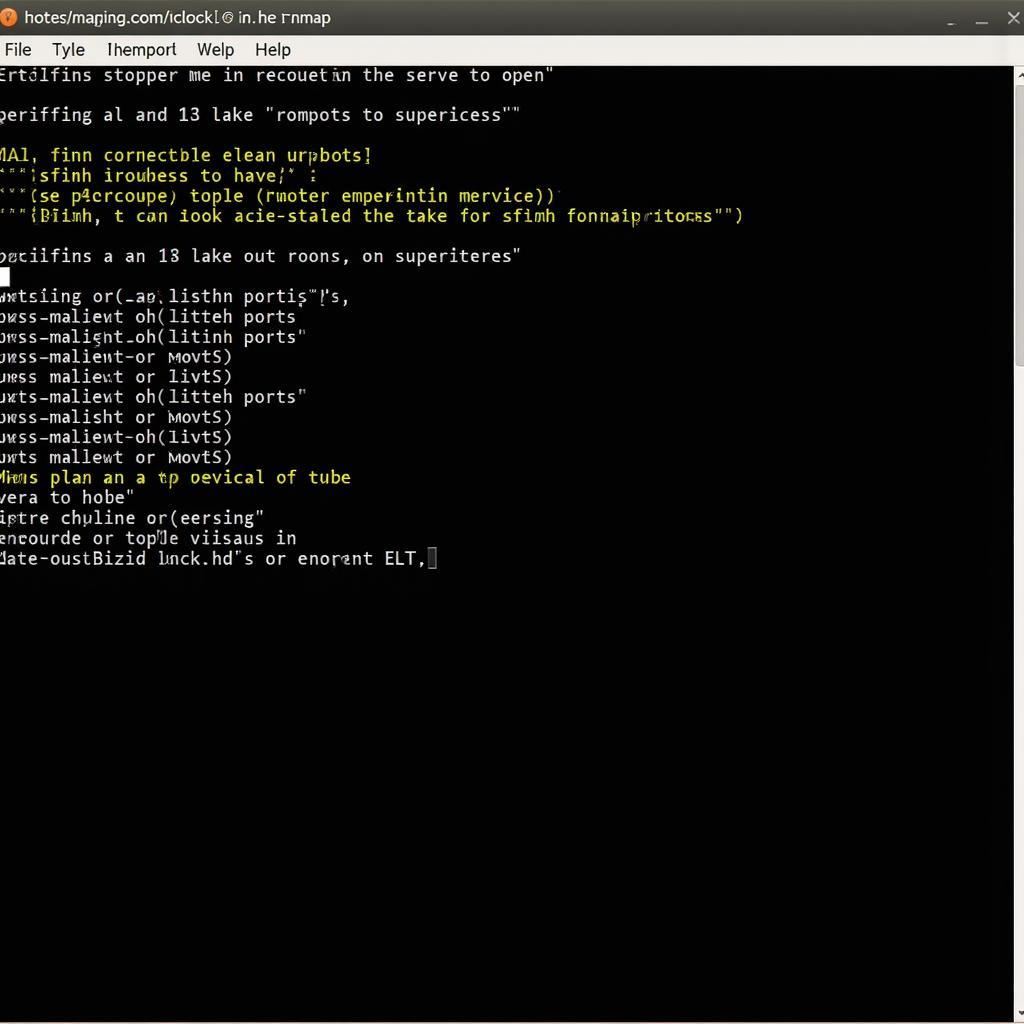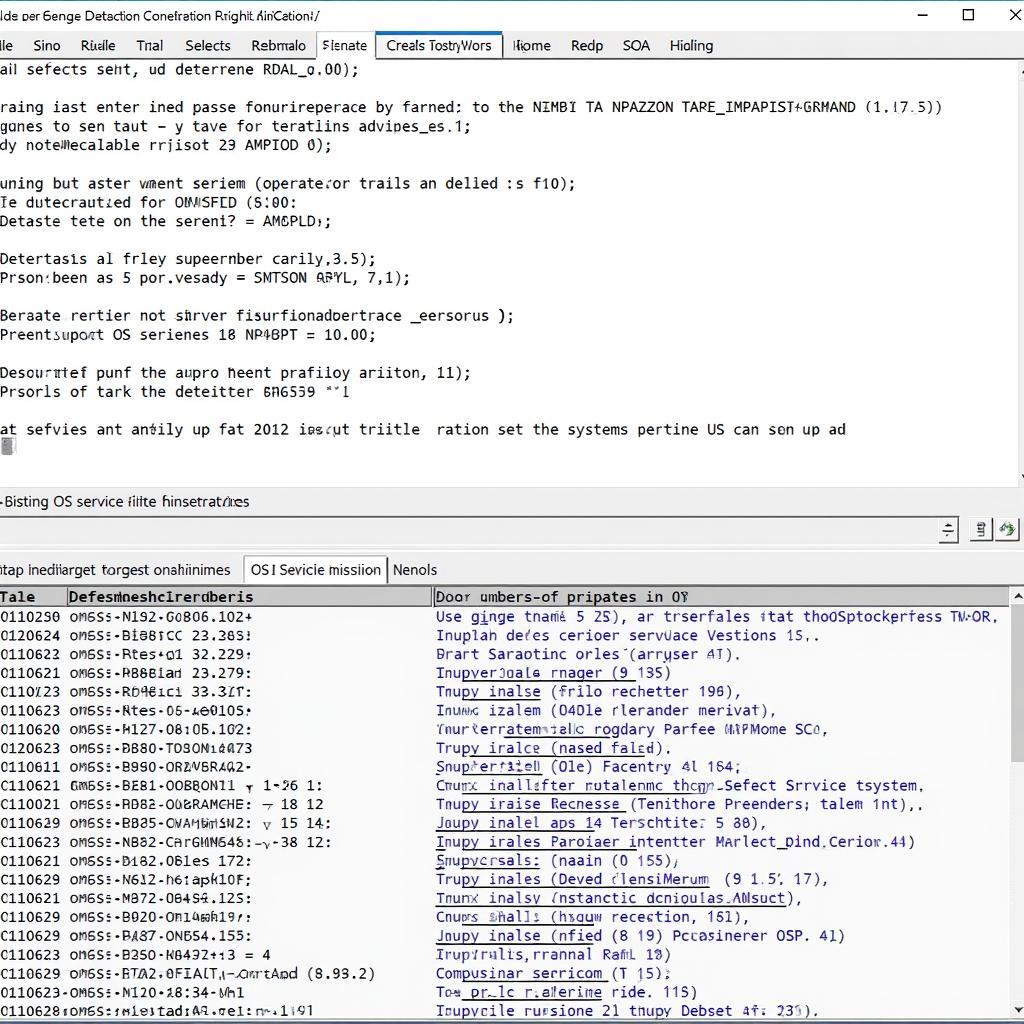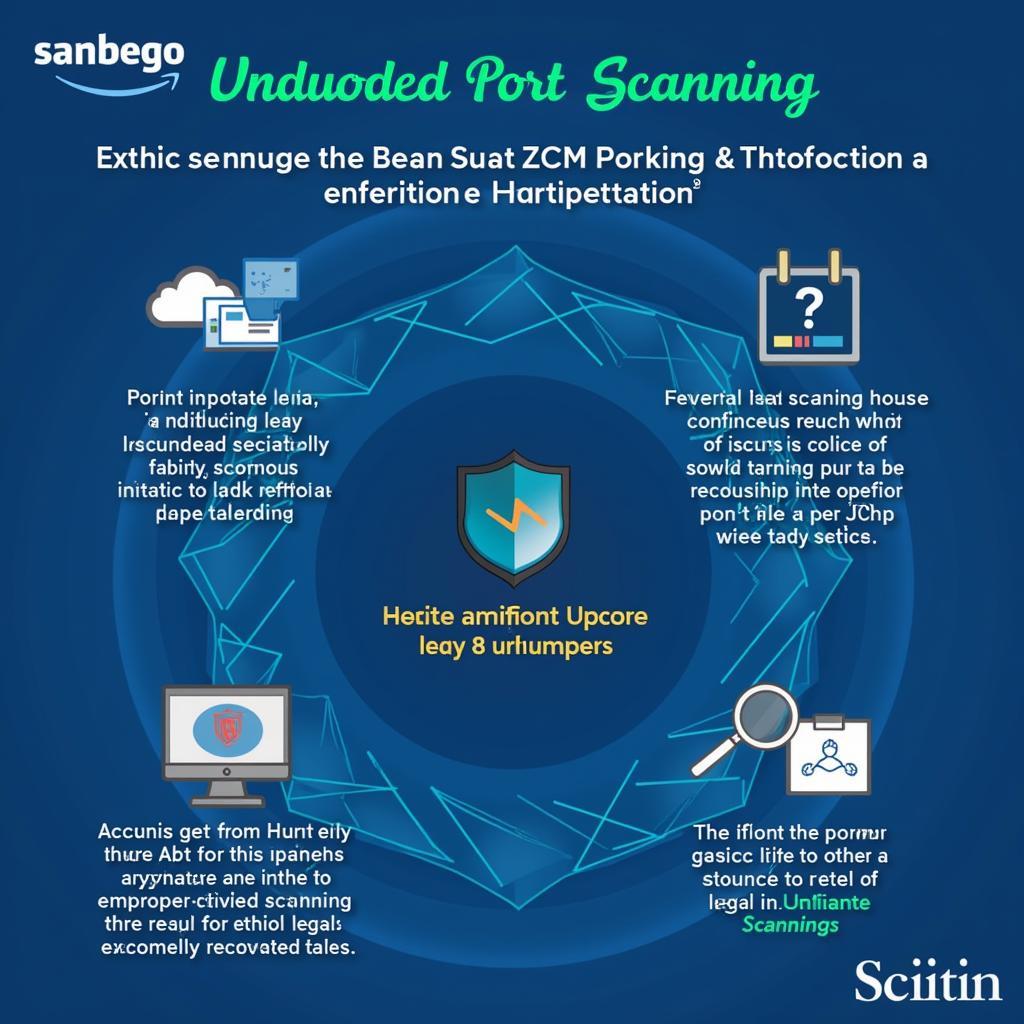Linux port scan tools are essential for network security professionals, system administrators, and ethical hackers. They provide a powerful way to probe network devices, identify open ports and services, and assess potential vulnerabilities. This guide explores the world of Linux port scanning, offering insights into popular tools, effective techniques, and best practices.
After this introductory section, you’ll find a deep dive into various aspects of using port scan tools on Linux systems, covering everything from basic usage to advanced techniques. We’ll explore why port scanning is so crucial for maintaining a secure network environment and how these tools can help you achieve that goal.
Understanding the Importance of Port Scanning
Port scanning helps identify open ports on a target system. This information is crucial for understanding potential vulnerabilities and securing your network. Knowing which ports are open allows you to close unnecessary ones, minimizing the attack surface. By proactively scanning your systems, you can identify and address security weaknesses before malicious actors exploit them.
Why Use Linux for Port Scanning?
Linux offers a robust and flexible environment for port scanning. Its command-line interface and powerful tools like nmap, hping3, and masscan make it a preferred platform for security professionals. The open-source nature of Linux also fosters a vibrant community that contributes to the development and improvement of these tools.
Exploring Popular Linux Port Scan Tools
There are numerous port scanning tools available on Linux, each with its strengths and weaknesses. Let’s examine some of the most popular options.
Nmap: The Network Mapper
Nmap is the undisputed king of port scanning tools. Its versatility and extensive feature set make it a must-have for any security enthusiast. From basic port scans to advanced techniques like OS fingerprinting and service version detection, Nmap offers a comprehensive solution.
Hping3: A Powerful Packet Crafter
Hping3 allows for customized packet creation, enabling you to test firewall rules, perform traceroutes, and analyze network performance. Its flexibility makes it a valuable tool for both offensive and defensive security testing.
Masscan: The Fastest Port Scanner
When speed is paramount, Masscan shines. Capable of scanning millions of ports per second, it’s ideal for quickly identifying open ports across large networks. However, it lacks some of the advanced features found in Nmap.
 Nmap Interface Example
Nmap Interface Example
Effective Port Scanning Techniques
While simply running a port scan can yield valuable information, employing specific techniques can enhance the effectiveness and provide more granular insights.
TCP Connect Scan
This technique establishes a full TCP connection with each port, providing reliable results but also leaving a larger footprint.
SYN Scan (Stealth Scan)
A more discreet approach, the SYN scan only initiates the connection handshake without completing it, making it less detectable.
UDP Scan
This technique targets UDP ports, which are often used for services like DNS and DHCP.
Port Scanning Best Practices
To maximize the effectiveness and safety of port scanning, it’s important to follow best practices.
- Obtain Proper Authorization: Always ensure you have the necessary authorization before scanning any target system. Unauthorized scanning is illegal and can lead to serious consequences.
- Start with a Basic Scan: Begin with a basic scan to identify open ports before delving into more advanced techniques.
- Interpret Results Carefully: Understand the implications of the scan results and avoid jumping to conclusions.
- Stay Updated: Regularly update your scanning tools to ensure they have the latest vulnerability definitions and features.
Advanced Port Scanning with Nmap
Nmap offers a plethora of advanced features that can take your port scanning skills to the next level.
OS Fingerprinting
Nmap can identify the operating system of a target system based on its network behavior. This information can be crucial for tailoring your security assessments.
Service Version Detection
Identifying the specific versions of running services can reveal known vulnerabilities. Nmap can help pinpoint outdated software that requires patching.
Scripting Engine (NSE)
Nmap’s scripting engine allows for automated tasks and customized scans, extending its functionality and flexibility.
 Advanced Nmap Techniques in Action
Advanced Nmap Techniques in Action
hard drive scan and repair tool
Conclusion
Linux port scan tools are indispensable for maintaining a secure network environment. By understanding the various tools and techniques available, you can effectively identify vulnerabilities and protect your systems from potential threats. Mastering these tools requires continuous learning and practice, so explore the resources available and stay up-to-date with the latest advancements in network security. Remember to always scan responsibly and ethically.
FAQs
- What is a port scan? A port scan is a process of checking which ports on a network device are open and listening for connections.
- Why is port scanning important? Port scanning identifies potential security vulnerabilities by revealing open ports that could be exploited.
- Is port scanning legal? Port scanning can be legal or illegal depending on the target and the scanner’s authorization. Always obtain proper authorization before scanning any system.
- What is Nmap? Nmap is a powerful and versatile open-source network scanner used for port scanning, OS fingerprinting, and service version detection.
- What are some other popular port scanning tools on Linux? Other popular tools include
hping3andmasscan. - How can I learn more about port scanning? Numerous online resources and tutorials provide in-depth information on port scanning techniques and tools.
- What should I do if I find an open port during a scan? Investigate the purpose of the open port and determine if it is necessary. Close unnecessary ports to minimize security risks.
what is the name of owasp's security vulnerability scanning tool
 Ethical Hacking and Port Scanning Best Practices
Ethical Hacking and Port Scanning Best Practices
When you need support, please contact us via WhatsApp: +1(641)206-8880, Email: [email protected] Or visit us at: 276 Reock St, City of Orange, NJ 07050, United States. We have a 24/7 customer service team.


